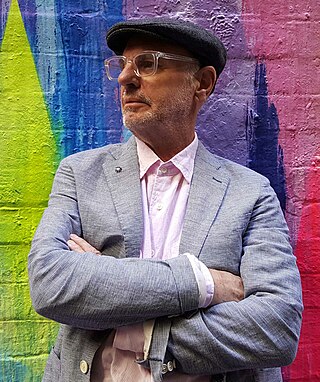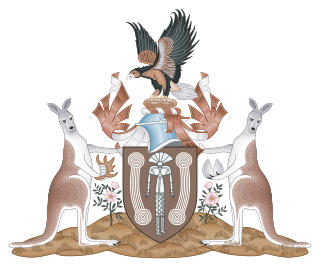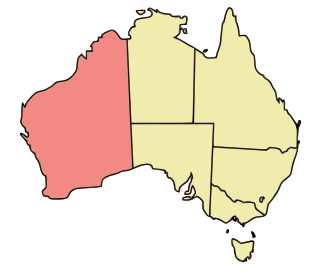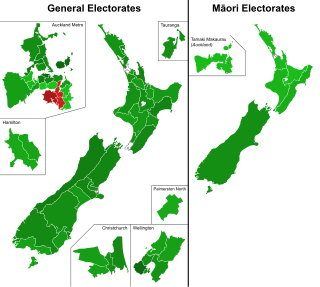
Assisted suicide means a procedure in which people take medications to end their own lives with the help of others, usually medical professionals. The term usually refers to physician-assisted suicide (PAS), which is an end of life measure for a person suffering a painful, terminal illness. Once it is determined that the person's situation qualifies under the physician-assisted suicide laws for that location, the physician's assistance is usually limited to writing a prescription for a lethal dose of drugs.

Philip Haig Nitschke is an Australian humanist, author, former physician, and founder and director of the pro-euthanasia group Exit International. He campaigned successfully to have a legal euthanasia law passed in Australia's Northern Territory and assisted four people in ending their lives before the law was overturned by the Government of Australia. Nitschke was the first doctor in the world to administer a legal, voluntary, lethal injection, after which the patient activated the syringe using a computer. Nitschke states that he and his group are regularly subject to harassment by authorities. In 2015, Nitschke burned his medical practising certificate in response to what he saw as onerous conditions that violated his right to free speech, imposed on him by the Medical Board of Australia. Nitschke has been referred to in the media as "Dr Death" or "the Elon Musk of assisted suicide".

The Rights of the Terminally Ill Act 1995(NT) was a law legalising euthanasia in the Northern Territory of Australia, which was passed by the territory's Legislative Assembly on 1995. The Act was passed by the Northern Territory Legislative Assembly on 25 May 1995 by a vote of 15 to 10, received the Administrator's assent on 16 June 1995, and entered into force on 1 July 1996. A year later, a repeal bill was brought before the Northern Territory Parliament in August 1996, but was defeated by 14 votes to 11.
The right to die is a concept based on the opinion that human beings are entitled to end their life or undergo voluntary euthanasia. Possession of the right to die is often bestowed with the understanding that a person with a terminal illness, incurable pain, or without the will to continue living should be allowed to end their own life, use assisted suicide, or decline life-prolonging treatment. The question of who, if anyone, may be empowered to make this decision is often the subject of debate.
Voluntary euthanasia is the ending of a person's life at their request in order to relieve them of suffering. Voluntary euthanasia and physician-assisted suicide (PAS) have been the focus of intense debate in recent years. Some forms of voluntary euthanasia are legal in Australia, Belgium, Canada, Colombia, Luxembourg, the Netherlands, New Zealand, and Spain.

Suicide is a crime in some parts of the world. However, while suicide has been decriminalized in many countries, the act is almost universally stigmatized and discouraged. In some contexts, suicide could be utilized as an extreme expression of liberty, as is exemplified by its usage as an expression of devout dissent towards perceived tyranny or injustice which occurred occasionally in cultures such as ancient Rome, medieval Japan, or today's Tibet Autonomous Region.

The legality of euthanasia varies between countries and territories. Efforts to change government policies on euthanasia of humans in the 20th and 21st centuries have met with limited success in Western countries. Human euthanasia policies have also been developed by a variety of NGOs, most advocacy organisations although medical associations express a range of perspectives, and supporters of palliative care broadly oppose euthanasia.

Nicolas Pierre Goiran is an Australian politician who has been a member for the South Metropolitan Region of the Western Australian Legislative Council (MLC), the upper house of the Parliament of Western Australia, since 22 May 2009.
Euthanasia became legal in New Zealand when the End of Life Choice Act 2019 took full effect on 7 November 2021. It is illegal to "aid and abet suicide" under Section 179 of the New Zealand Crimes Act 1961. The clauses of this act make it an offence to "incite, procure or counsel" and "aid and abet" someone else to commit suicide, regardless of whether a suicide attempt is made or not. Section 179 covers both coercion to undertake assisted suicide and true suicide, such as that caused by bullying. This will not change under the End of Life Choices Act 2019, which has provisions on coercion of terminally ill people.

Laws regarding euthanasia or assisted suicide in Australia are matters for state and territory governments. As of June 2024 all states and the Australian Capital Territory have passed legislation creating an assisted suicide and euthanasia scheme for eligible individuals. These laws typically refer to the practices as "voluntary assisted dying".

David William Goodall was an English-born Australian botanist and ecologist. He was influential in the early development of statistical methods in plant communities. He worked as researcher and professor in England, Australia, Ghana and the United States. He was editor-in-chief of the 30-volume Ecosystems of the World series of books, and author of over 100 publications. He was known as Australia's oldest working scientist, still editing ecology papers at age 103. Long an advocate of voluntary euthanasia legalisation, he ended his own life in Switzerland via physician-assisted suicide at age 104.

Malcolm James McCusker is an Australian barrister and philanthropist who was the 31st Governor of Western Australia, serving from July 2011 to June 2014.
Amber-Jade Sanderson is an Australian Labor Party politician who is the member for Morley in the Western Australian Legislative Assembly, the lower house of the Parliament of Western Australia. Since 21 December 2021, she has been Minister for Health and Minister for Mental health. From 19 March 2021 to 21 December 2021, she was Minister for Environment, Minister for Climate Action and Minister for Commerce. She rose to prominence when she chaired the Joint Select Committee on End of Life Choices. From 22 May 2013 to 5 February 2017, she was a member of the Western Australian Legislative Council, the upper house of the Parliament of Western Australia, for the East Metropolitan Region.

Lesbian, gay, bisexual and transgender (LGBT) rights in Western Australia have seen significant progress since the beginning of the 21st century, with male sex acts legal since 1990 and the state parliament passing comprehensive law reforms in 2002. The state decriminalised male homosexual acts in 1990 and was the first to grant full adoption rights to LGBT couples in 2002.
Clive Deverall, AM, HonDLitt (Curtin), was the CEO of the Cancer Council of Western Australia from 1977 to 2000. He was educated at Hurstpierpoint College, West Sussex, England.

On 29 November 2017, Victoria became the first Australian state to pass legislation allowing assisted suicide. The law gives anyone suffering a terminal illness, with less than six months to live, the right to end their life. The law had an 18-month implementation period, and came into effect on 19 June 2019.

The End of Life Choice Act 2019 is an Act of Parliament in New Zealand that gives people with a terminal illness the option of receiving assisted suicide or euthanasia. The act came into force on 7 November 2021, twelve months after the 2020 euthanasia referendum was declared in favour of the legislation.

The 2020 New Zealand euthanasia referendum was a binding referendum held in New Zealand on 17 October 2020, on the question of whether to legalise euthanasia via the End of Life Choice Act 2019. The vote was held in conjunction with the 2020 general election, and official results were released on 6 November 2020. It was accepted by New Zealand voters, with 65.1% in support and 33.7% opposed.
The Western Australian Division of the Liberal Party of Australia held a leadership vote on 24 November 2020 to determine its leader. The election was conducted among Liberal Party members of the Parliament of Western Australia. It came after its previous leader, Liza Harvey, resigned following poor opinion polling. Deputy leader Bill Marmion also resigned on the same day. The main candidates touted ahead of the election were Dean Nalder, a member of parliament since 2013 and a minister in the Barnett Ministry, and Zak Kirkup, a member of parliament since 2017. Nalder declined to nominate for the leadership after it became clear he did not have the full support of the Liberal Party caucus. As a result, Kirkup won the leadership unopposed, becoming the state's leader of the opposition. Libby Mettam was elected unopposed as the deputy leader.












